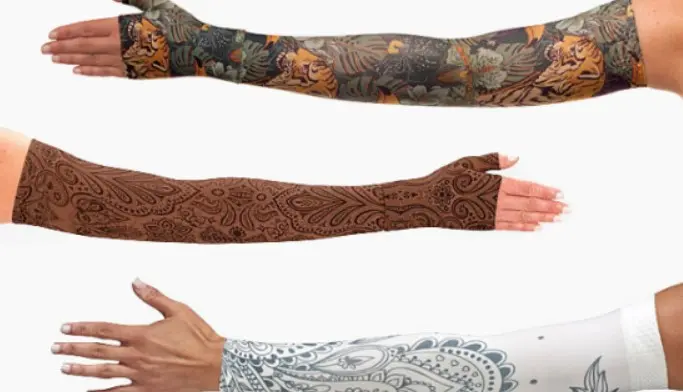Home > Products > Compression Garments > Lymphedema Sleeves
Lymphedema Sleeves
Lymphedema sleeves are medical compression garments worn on the arms to reduce swelling and improve lymphatic flow in individuals with lymphedema, typically after surgery or radiation.
-
Compression levels (measured in mmHg):
- Class 1 (15–20 mmHg): Mild compression
- Class 2 (20–30 mmHg): Moderate compression (most common)
- Class 3 (30–40 mmHg): Firm compression (for more severe cases)
- Materials: Breathable, stretchable, moisture-wicking fabrics
- Fit: Custom-fit or off-the-shelf options
- Design: Can be worn alone or with a gauntlet (handpiece) to prevent swelling in the hand
- Medical Advice: Always get a recommendation from orthotist.
- Fit: A proper fit is critical. You may need professional measuring.
-
Use Case:
- For daily use or exercise
- During air travel (to prevent flare-ups)
- Post-surgery or post-radiation therapy
- Hand-wash in cold water or use a gentle cycle
- Air-dry (avoid heat)
- Replace every 4–6 months (they lose elasticity over time)
- Juzo
- Jobst
- Medi
- Sigvaris
- LympheDIVAs (stylish printed options)
- Don’t wear a sleeve with poor fit—can worsen swelling.
- Avoid wearing at night unless prescribed.
- Watch for signs of infection (redness, heat, pain).

Lymphedema sleeves are specially designed compression garments worn on the arm (or sometimes the leg) to help manage lymphedema, a chronic condition where excess lymphatic fluid collects in tissues and causes swelling, typically in the limbs.
What is Lymphedema?
Lymphedema commonly occurs after lymph node removal or damage, often due to cancer treatment (e.g., breast cancer surgery or radiation). It can be primary (inherited) or secondary (acquired).
What Are Lymphedema Sleeves?
Lymphedema sleeves apply graduated compression, meaning the pressure is highest at the wrist and decreases as it goes up the arm. This helps push lymph fluid back toward the body’s core, reducing swelling.
